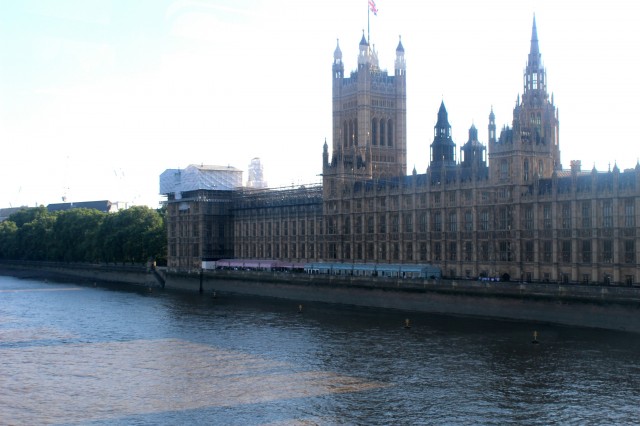Times obituary, 9 August 2014
Bus company manager whose passion for his work helped to revive vehicles made in Britain

General managers of municipal bus companies were once prominent figures who had their names written in gold leaf on the side of the vehicles they shepherded through Britain’s towns and cities. As a bus-obsessed boy in Cheshire, Geoffrey Hilditch decided that one day his name would be emblazoned on the side of a bus.
In this quest, Hilditch had a profound impact on British buses as he climbed the industry ladder, becoming the youngest general manager of a bus company at 33, advising the Thatcher government on its privatisation of the industry in the mid-1980s and helping to secure the survival of British bus manufacturing.
He took great pleasure in driving the buses himself and his vision for the ideal urban workhorse was the Dennis Dominator: a rear-engined double decker, which he helped to develop in the 1970s while general manager at the Leicester bus company. Rear-engined buses had been introduced several years before to enable drivers to take fares and render the traditional conductor redundant. However, early versions brought out by Leyland and Scania were blighted by reliability problems. Hilditch was particularly frustrated with the industry leader British Leyland, which he witheringly called “Old Mother Leyland”. The ailing giant was riven with industrial strife and more focused on trying to develop new cars. Hilditch believed it was using its market dominance in buses to restrict customer choice.
He cited the Dennis Loline as one of the best-engineered buses and had bought the last five built in 1967. The Guildford-based manufacturer had not built a bus for several years when Hilditch provided the company with a scrap vehicle on which to experiment. While general manager at Leicester he bought 143 Dominators — powered by Gardner engines — from 1977. The Dominator proved its reliability by remaining in service in Leicester until 2005. Today, the last Dominator still in operation works on a school run in Washington, Tyne and Wear.
Hilditch cut a traditional figure with his old-fashioned suits and slicked-back hair, but as the industry faced change, he moved with the times. In one of his provocative columns in industry magazines, such as Buses, he claimed that government subsidies were only inflating the price of building buses. After taking early retirement from Leicester in 1984, he became a trusted adviser to the transport minister Nicholas Ridley, who was drawing up plans to deregulate and privatise the industry.
No shrinking violet, he shamed Ridley into shelving plans to transfer local government pension rights to the arms’ length organisations that would initially replace municipal companies. “How would you like it.” he told Ridley, “if you worked in an industry all your life only to see your retirement rights stripped away at once.”
Hilditch had always supported the principal of “buying British” and believed that the privatised industry could be sustained by domestic manufacturing and engineering. While at Leicester, he had supported the development of the Avon Maxwell automatic gearbox as a British alternative to the German-made Voith gearbox. “If the product cannot come from a British-owned company then hopefully most of the order will begin life in a British factory,” he said.
Hilditch was heartbroken as great names in bus manufacturing went out of business. “Every time one is closed, another design team is broken up and it is only through the competitive activities of design teams that the breed improves,” he said. However, he was cheered when British bus building began to recover recently, with the emergence of Wrightbus in Northern Ireland, and the consolidation of Alexander, Dennis and Plaxton into Alexander Dennis, which saved the Guildford plant.
Geoffrey Graham Hilditch was born in Disley, Cheshire in 1926 and won a scholarship to Hulme grammar school in Oldham. The local bus company — needing to disperse its fleet in case the main depot was bombed during the war — started parking several of its vehicles opposite the family home. Hilditch, became an “unofficial staff member”. Sent to a newsagent to buy some pipe tobacco for his father, he paused outside the shop transfixed by a passing tram. The shopkeeper asked: “Are you interested in transport, lad?” When the boy nodded shyly, the proprietor gave him a transport magazine. From that day on, Hilditch devoured any bus literature he could lay his hands on.
He became an apprentice railway engineer in Manchester, but his heart was on the buses. The existence of so many municipal bus companies was good news for ambitious young engineers and Hilditch moved to Oldham, Coventry, Manchester and Leeds before becoming assistant engineer at Halifax in 1955. The steep hills of the West Yorkshire town provided a great challenge for a bus engineer, especially keeping fuel consumption to a minimum. Hilditch often landed himself in trouble for telling bus manufacturing executives what was wrong with their models.
In 1959 he became the youngest general manager in the country, in Great Yarmouth. He moved back to Halifax to become general manager in 1963 and on to Leicester in 1975. Here, he built up a reputation for answering all customer correspondence personally. When the cowboys and cowgirls of Leicester Western Society were barred from buses because of their replica guns, he wrote to commiserate and started his letter: “Howdy Partners,” before telling them that with regret they would have to find another wagon for their journey.
He went to extraordinary lengths to recruit the best young engineers. One such was, David Kent, who was working in Reading and thought he had failed his interview. Several weeks later he was working under a bus when one of his colleagues reported that a “strange man” was wandering around the garage inspecting operations. Hilditch announced he was going up “to have a chat with Jenkins” (Royston Jenkins, the general manager). “Mr Jenkins, I’ve had a look at Mr Kent’s workshops. They seem OK. He’s coming to Leicester. When can he start? I need him now. We’ll sort out the terms and money. How about next Monday?”
Hilditch was appointed OBE for pioneering the first bus service for disabled people in Leicester; he worked on the design of the bus with the Second World War flying ace Douglas Bader.
Hilditch never dismissed bus enthusiasts, however eccentric, as oddities — perhaps because he recognised something of himself in them. His future wife Muriel found as she sat nervously in his parents’ parlour that she had to place her legs in front of a model railway that had snaked around the house for years.
When Hilditch moved to Halifax he drilled tunnels between the bedrooms of his house to add further authenticity to his model railway. Later, while at Leicester, he kept his spare train sets in what was the general manager’s private toilet. He also built up a large collection of model buses.
He is survived by their son Christopher, who has also worked as an engineer and manager in the bus industry, and a daughter, Diane, a special needs teacher who as a child once mischievously wrote to her father to complain about her school bus service. Muriel died in 2007.
His autobiography, Steel Wheels and Rubber Tyres, found a wide readership who appreciated his wry style and social commentary. The third and fourth volumes will be published later this year. He has been given an eight-page obituary in Buses.
Hilditch would give his young engineers a verbal roasting if he thought it would improve their performance, but many of his charges still looked up to him as a father figure. One of them, John Hanchett, was killed along with his wife when a tree fell on their car. The Hanchetts’ two orphaned children were brought up by Hilditch and his wife.
Geoffrey Hilditch, OBE, bus manager, was born on February 27, 1926. He died of a heart attack on June 20, 2014, aged 88









